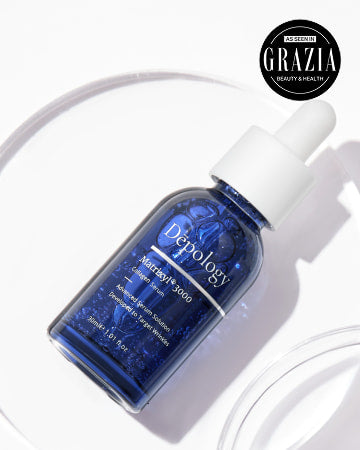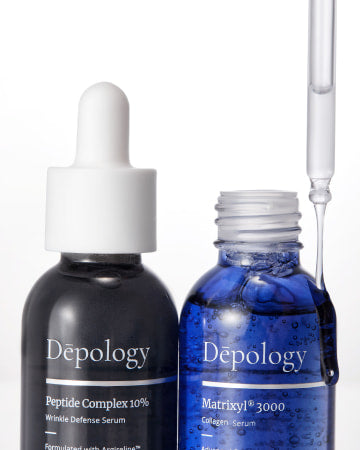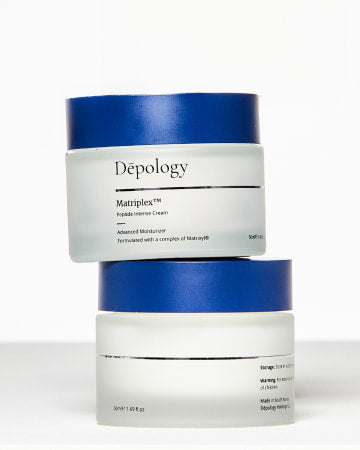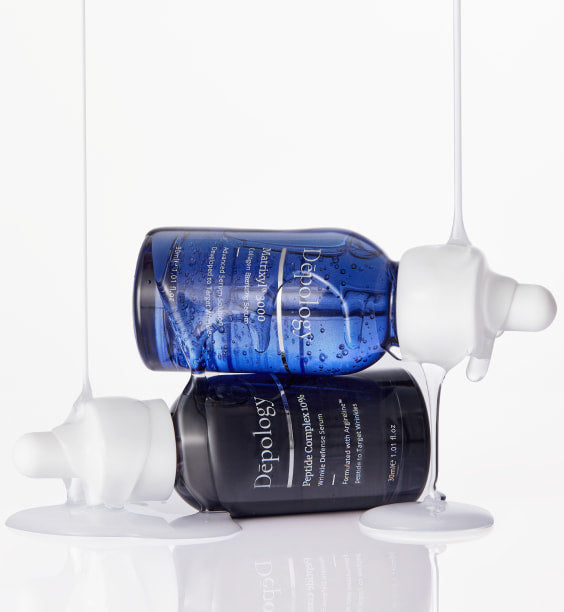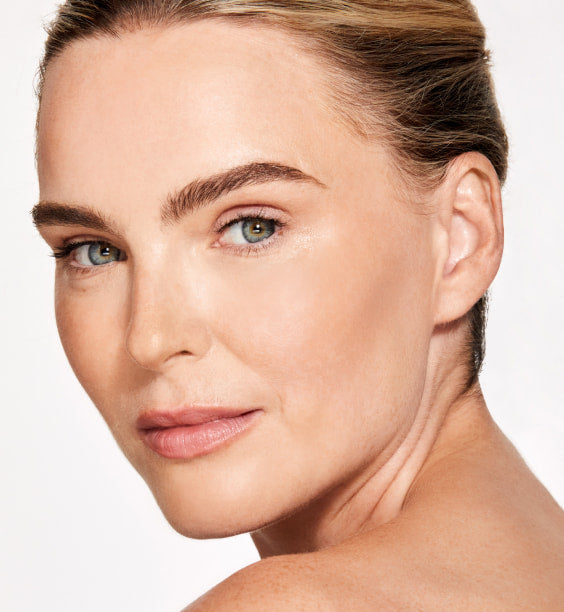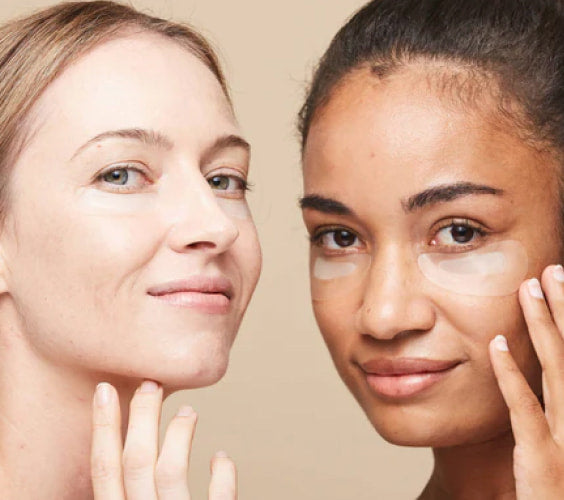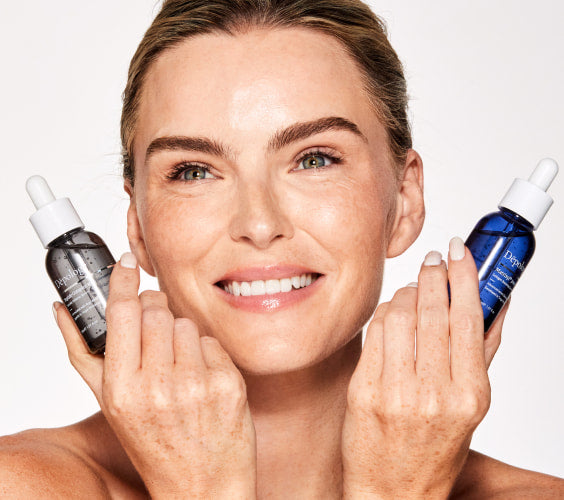
What Is Meant By Clean Skincare?
The skincare industry has evolved significantly over the years, driven by various factors including advancements in science and technology, changing consumer preferences, and a growing awareness of the importance of skincare. Korean and Japanese skincare trends in particular have had a global influence, with their multi-step routines, innovative ingredients, and emphasis on achieving "glass skin."
With an increased emphasis on the importance of healthy skin, it has made users more aware of what types of formulas they are putting on their skin. A practical skincare routine is only as beneficial as an informed user, leading to the concept of “clean” or “green” beauty and skincare. What exactly do these terms mean and is there more effort required on your end to achieve these standards?
What is the meaning of “clean beauty”?
“Clean beauty” is a term used to describe a category of beauty and personal care products that are formulated with a focus on using natural, non-toxic, and environmentally friendly ingredients. The primary fundamentals of clean beauty include:
Non-Toxic Ingredients
Clean beauty products typically avoid using harmful ingredients such as sulfates and synthetic fragrances. Instead, they use naturally derived or organic ingredients that are considered safe for consumers and the environment.
Transparency
Brands that promote clean beauty often emphasize transparency in their ingredient lists. They provide clear and detailed information about what goes into their products, allowing consumers to make informed choices.
Environmental Responsibility
Clean beauty products often prioritize sustainability and eco-friendliness. This may involve using recyclable packaging, reducing water usage in production, and sourcing ingredients in an environmentally responsible manner.
Cruelty-Free
Many clean beauty brands commit to not testing their products on animals. They may also use vegan ingredients to appeal to consumers who care about animal welfare.
Holistic Approach
Clean beauty is sometimes associated with a holistic approach to beauty and skincare, emphasizing overall health and wellness alongside cosmetic benefits.
What are some clean ingredients in skincare?
Clean ingredients in skincare are typically those that are considered safe, non-toxic, and environmentally friendly. These ingredients are often derived from natural sources and avoid harmful chemicals. Here are some common clean ingredients used in skincare:
Aloe Vera: Known for its soothing and hydrating properties, aloe vera is used to calm irritated skin and provide moisture.
Jojoba Oil: Jojoba oil is a natural moisturizer that is similar to the skin's sebum. It's often used to hydrate and balance the skin.
Shea Butter: This clean ingredient is a rich, natural moisturizer that helps to nourish and soften the skin.
Coconut Oil: Coconut oil is used for its moisturizing properties and is often found in cleansers, moisturizers, and hair care products.
Hyaluronic Acid: Hyaluronic acid is a powerhouse hydrating ingredient that can hold up to 1,000 times its weight in water, helping to plump and moisturize the skin.
Green Tea Extract: Green tea is known for its antioxidant properties and is often used to protect the skin from environmental damage.
Chamomile: Aside from being a favorable tea beverage, chamomile has many anti-inflammatory and soothing properties, making it useful for sensitive or irritated skin.
Witch Hazel: Witch hazel is an astringent (which causes the contraction of the body’s skin cells and body tissues) that can ultimately help with tightening and toning the skin. It's typically formulated in toners.
Vitamin E: Vitamin E is an antioxidant that works to protect the skin from free radical damage. Its benefits are found in several anti-aging products, from creams to moisturizers.
Rosehip Oil: Rosehip oil is rich in vitamins and antioxidants and is used for its moisturizing and skin-regenerating properties.
Calendula: Calendula has anti-inflammatory and healing properties and is used to soothe and repair the skin.
Glycerin: Glycerin is a humectant that attracts and retains moisture in the skin, helping to keep it hydrated.
Tea Tree Oil: Tea tree oil has antibacterial and antimicrobial properties and is used in products targeting acne-prone skin.
Argan Oil: Argan oil is a nourishing oil rich in fatty acids and vitamins, often used for its moisturizing and anti-aging benefits.
Squalane: Squalane is a lightweight moisturizing ingredient that mimics the skin's natural oils.
Cucumber Extract: Cucumber extract is known for its soothing and hydrating properties, making it suitable for sensitive skin.
While clean beauty products do their best to prioritize using these kinds of ingredients, make sure to check product labels for the complete list of ingredients. This will ensure they meet your clean beauty criteria.
How do I know if skincare ingredients are non-toxic?
Determining whether skincare ingredients are non-toxic can be a bit challenging because the term "non-toxic" doesn't have an official definition in the cosmetics industry. The safety of a skincare ingredient can depend on various factors, including individual sensitivities and preferences. However, you can take several steps to assess the safety of skincare ingredients:
Check Ingredient Lists
Start by examining the ingredient list on the product's packaging. Look for ingredients that are known to be potentially harmful or irritating. Some common ingredients to avoid include parabens, sulfates, phthalates, synthetic fragrances, and artificial colors.
Research Ingredients and Skincare Brands
Look up unfamiliar ingredients in reputable sources. Based in Washington, D.C., the non-profit Environmental Working Group (EWG), as well as the affiliated Skin Deep database are helpful resources for researching the safety of skincare ingredients. They provide information on potential health concerns associated with specific ingredients.
Some skincare products may also carry certifications like "USDA Organic" or "Cruelty-Free," which can assure that the product meets certain standards of safety and ethics.
Know Your Skin Type
Everyone's skin is different, and what may be non-toxic and safe for one person could be irritating or problematic for another. Consider your skin type, sensitivities, and any known allergies when evaluating skincare ingredients.
Patch Testing
If you're unsure how your skin will react to a product, perform a patch test. Apply a small amount of the product to a discreet area of your skin (like your inner forearm) and monitor for any adverse reactions, such as redness, itching, or irritation.
Consult with a Dermatologist
If you have specific skin concerns or sensitivities, it's a good idea to consult with a dermatologist. They can provide personalized recommendations and help you identify ingredients that are safe for your skin.
Avoid Common Allergens
If you have known allergies, be vigilant about avoiding ingredients that trigger allergic reactions in your skin. Common allergens include nuts, certain fragrances, and specific botanical extracts.
Use Common Sense
If a skincare product makes extravagant claims that seem too good to be true, it might be worth approaching with caution. Be skeptical of products that promise dramatic results with little scientific backing.
While avoiding potentially harmful ingredients is essential, skincare is a personal journey. What works well for one person may not work for another. You should always listen to your skin, adapt your skincare routine as needed, and prioritize products that align with your skin type and concerns.
Is “green skincare” the same as “clean skincare”?
"Green skincare" and "clean skincare" are related concepts in the beauty and personal care industry, but they are not necessarily the same. They share some similarities but also have distinct characteristics:
Clean Skincare:
Clean skincare primarily emphasizes the use of safe and non-toxic ingredients. It aims to exclude potentially harmful chemicals from being implemented into product formulas.
Brands that promote clean skincare often prioritize transparency in ingredient lists and sourcing practices. These brands may also take environmental responsibility into account but at the same time, may not necessarily focus on sustainability as their primary goal.
Green Skincare:
Green skincare is a broader concept that encompasses not only the safety of ingredients but also the environmental impact of skincare products. It emphasizes sustainability, eco-friendliness, and ethical sourcing in addition to ingredient safety.
Skincare brands taking a lead in green skincare often prioritize sustainable sourcing of ingredients, environmentally friendly packaging, and reduced water and energy consumption in their production processes. Green skincare may also involve ethical considerations in the production process, such as fair trade practices and cruelty-free testing, beyond just the safety of ingredients.
Why should you be concerned about clean beauty?
Caring about clean beauty is a personal choice, and people have various reasons for being concerned about the products they use on their skin and bodies. Here are some common reasons why individuals might concern themselves with clean beauty standards:
Health and Safety
One of the primary reasons people opt for clean beauty products is to avoid potentially harmful chemicals and toxins. These can sometimes be found in conventional cosmetics and skincare and can increase the risk of adverse reactions or long-term health issues, such as various carcinogens.
Personal Values
Clean beauty aligns with the personal values of many consumers. It's a way to support companies that prioritize health, sustainability, and ethical practices. For some, using clean beauty products is a form of self-care and self-expression that reflects their values and beliefs.
Skin Sensitivities
Some individuals have sensitive skin or conditions like eczema or rosacea that are exacerbated by certain chemicals or synthetic ingredients commonly found in conventional beauty products. Clean beauty products often exclude these irritants and can be gentler on the skin.
Long-Term Benefits
Clean beauty products are often formulated with nourishing, natural ingredients that can provide long-term benefits to the skin and hair. This can include vitamins, antioxidants, and other nutrients that promote healthier skin and hair over time.
Supporting Innovation
The growing demand for clean beauty products encourages innovation in the beauty industry. Companies are developing new ways to create effective and safe products, which can benefit consumers in the long run.
Conclusion
The term “clean beauty” is not regulated by any official industry standards, so the interpretation and implementation of these concepts can vary from brand to brand.
At Dēpology, we strive for maximum effectiveness, formulating our collection of products with only the most high-performing ingredients. Backed by our team of leading cosmetic chemists, our core K-beauty principle is to provide the safest, most scientifically backed ingredients and formulas to users around the world.

